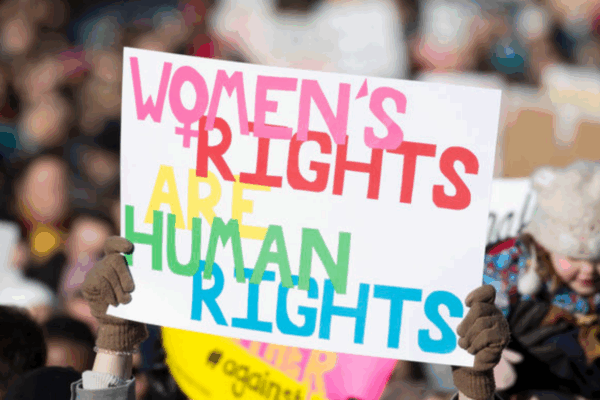On July 1, sweeping new civil rights protections went into effect throughout the Commonwealth. Earlier this year, three new laws were passed by the General Assembly and signed into law by Gov. Ralph Northam – the Virginia Values Act, the Pregnant Workers Fairness Act (PWFA) and the CROWN Act. These laws codify meaningful state civil rights protections for the first time for Virginians and make Virginia the first state in the south to extend state nondiscrimination laws to all members of the LGBTQ community.
So what do you need to know about these new rights?
Protections Against Employment Discrimination
All employees working in Virginia for employers with 15 or more employees are now protected by state law from discrimination on the job because of who they are. Employers can’t refuse to hire, or otherwise discriminate against employees on the basis of their race, color, religion, sex, sexual orientation, gender identity, marital status, pregnancy, childbirth, or related medical conditions including lactation, age, status as a veteran, or national origin. Employers with six to fourteen employees are only barred by state law from firing someone for these reasons. These protections are available to employees at both public and private employers.
Importantly, the CROWN Act explicitly added discrimination on the basis of natural hairstyles to the definition of race discrimination under these statutes. This means that employers with 15 or more employees can no longer discriminate against employees who choose to wear their hair in an afro, braids, locks, or twists – and employees who face discrimination for wearing natural hairstyles have the same legal rights in the workplace as those facing other types of discrimination. Employers with six to fourteen employees also cannot fire someone who chooses these hairstyles.
The enforcement process now available under state law to Virginia employees is similar to the process available under federal law. If an employee believes they’ve been discriminated against, they must file a complaint with the Division of Human Rights in the Office of the Attorney General (DHR). This office has new powers to investigate and enforce discrimination complaints, including the power to sue employers DHR believes are breaking the law.
Once an employee has filed a complaint, DHR has 180 days to investigate and decide if it would like to take action against the employer. After 180 days, the employee may request a right to sue letter that will allow them to sue their employer directly. Employees may choose to hire a lawyer to represent them as early as filing a DHR complaint and can obtain injunctions or restraining orders preventing the unlawful behavior. They can recover both damages and attorney fees if they prove they were discriminated against.
Guarantee of Pregnancy Accommodations
Pregnant and breastfeeding workers at employers with five or more employees also are guaranteed reasonable accommodations in their workplace. These accommodations may include things like access to water, the option to sit instead of standing, limits on heavy lifting, or breaks to pump breast milk – what accommodations are available and reasonable will depend on the needs of both the employee and employer, Employees who need an accommodation may make the request to their employer. The employer and employee will then engage in a “good faith interactive process” – which means they work together to figure out what the employer can provide the employee without creating an undue hardship on the employer.
If an employer denies a reasonable accommodation request, or takes adverse action against an employee who requests an accommodation, the employee may sue their employer. A lawsuit must be filed within two years of the denial of accommodations or adverse action. The employee does not have to file a complaint with DHR before suing for a violation of the pregnancy accommodation law. If they do choose to file a complaint with DHR, they have 90 days after DHR makes a final decision on the complaint to file a lawsuit. An employee who wins a pregnancy accommodation lawsuit can recover damages; equitable relief, such as an order requiring that accommodations be provided; and attorney fees.
When the General Assembly passed the PWFA, the bill text said employers with five or more employees couldn’t discriminate against pregnant or breastfeeding workers. Sadly, the Code Commission stripped out this protection and raised the threshold for protection against termination and discrimination on the basis of pregnancy to 15 or more employees as in the Virginia Values Act.
Protections Against Other Types of Discrimination
In addition to proving state law protections against employment discrimination, the Virginia Values Act also established or strengthened protections against discrimination in public accommodation, credit and housing. Under the public accommodations law, any place or business that is open to the public is prohibited from discriminating against anyone on the basis of race, color, religion, national origin, sex, pregnancy, childbirth or related medical conditions, age, sexual orientation, gender identity, marital status, disability, or status as a veteran. These rights are enforceable by filing a complaint with DHR, through the same process as employment discrimination.
The Virginia Values Act added protections against discrimination on the basis of sexual orientation, gender identity and status as a veteran to existing fair housing laws that already prohibited discrimination on the basis of race, color, religion, national origin, sex, elderliness and familial status, and in some cases disability. The law also added protections against discrimination on the basis of sexual orientation, gender identity, pregnancy, childbirth or related medical conditions, disability, or status as a veteran to existing credit antidiscrimination laws that already protected against discrimination on the basis of race, color, religion, national origin, sex, marital status, and age.
Take Action
To make sure the new anti-discrimination laws are effective, Virginians need to know they exist – so tell a friend! If you’re facing discrimination in violation of one of these laws, the ACLU of Virginia wants to know. You can fill out an intake form here.

